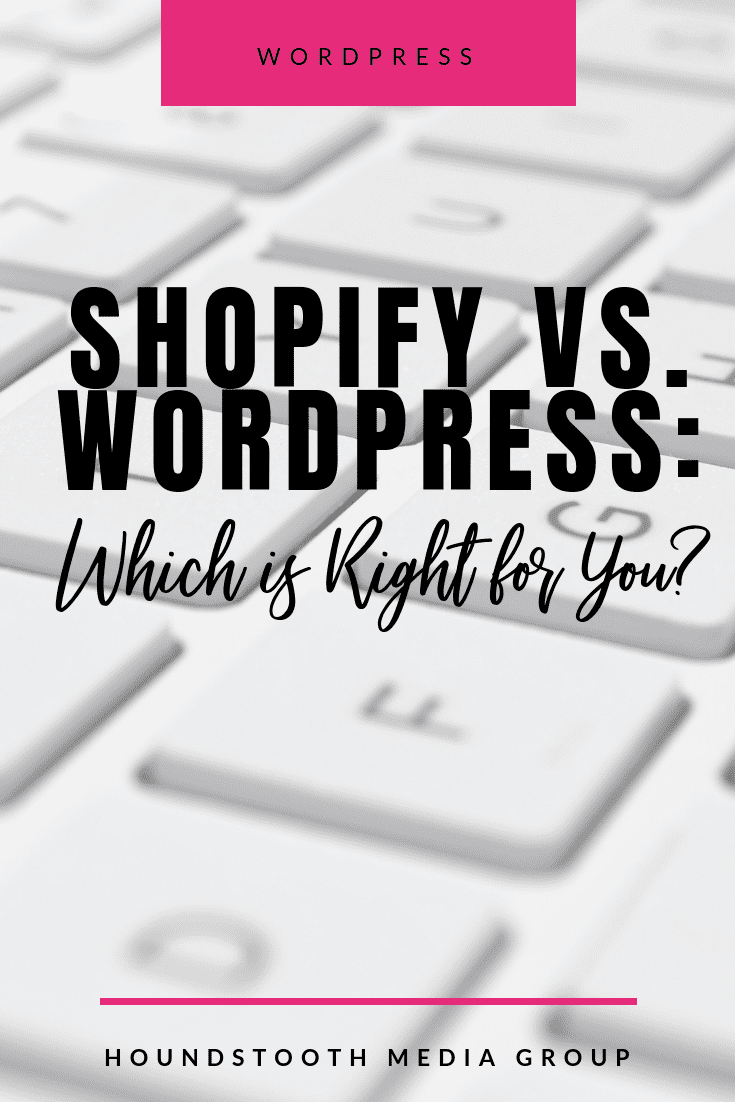It is estimated that eCommerce sales will approach $5 trillion dollars by the end of 2021. If you want to cash in on this activity, you are in luck. It’s easier than ever to create an online store. Shopify and WordPress are two of the more popular options. Let’s look at which one is right for you with our Shopify versus WordPress comparison.
Want more options? We have also compared WordPress to Wix and Squarespace. Let us help you decide which platform will work best for you.

Shopify versus WordPress
First, let’s take a look at what the two platforms are. Shopify is a dedicated eCommerce platform where you can build your online store. Shopify hosts your site and provides you with ample tools to create and run your online business. WordPress is an open-source platform, and it powers over one-third of the sites on the internet. You will need to host your own site and install plugins to have access to eCommerce tools. In summary, Shopify is entirely dedicated to online selling, while WordPress is built for selling plus so much more.
Shopify Pros and Cons

Shopify is designed to make creating an online shop as easy as possible. This is one of the big pros of this platform. It is built for eCommerce sites, so everything you will need is there for you. You do not need coding or advanced technical knowledge to set up your shop. You also will not need to pay an added fee for hosting or for security features.
One of the drawbacks to Shopify is the transaction fees. The fees vary and apply to every transaction in your store. You can use Shopify’s own payment gateway to reduce these fees. While the format for setting up your eCommerce site is not technically challenging, Shopify does not offer the simplicity of “drag and drop” formatting as other platforms do. Another downside to Shopify is that any time you change your theme you also have to reformat your content. This can be challenging if you decide to change your site later.
WordPress Pros and Cons
As an open-source platform, WordPress offers a nearly endless supply of options for customization. The biggest benefit to WordPress is that it is more powerful and flexible than Shopify, making it possible for you to create the online store of your dreams. The newest editor, Gutenberg, makes the platform easier to navigate, and there are themes and plugins that will allow you to use “drag and drop” formatting. Because of the popularity of WordPress, there are many helpful articles and forums online, with information coming from both professional developers and platform users.
While WordPress offers many free plug-ins, the platform can get expensive if you are not sure what you want or what to do. You will need to pay for web site hosting, pay to secure a domain name, and pay for site security. While you do not have to be a tech expert to use WordPress, it does require more technical literacy than Shopify does.
Understanding the differences between Shopify versus WordPress will help you make the best decision for your brand. Still overwhelmed by the options? The team at Houndstooth Media Group is made of experts who can help you turn your eCommerce dreams into reality. Contact us to discuss your options.